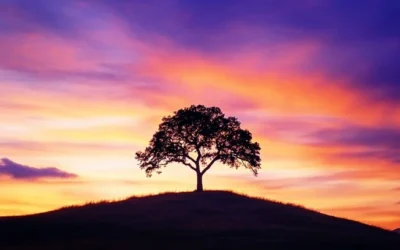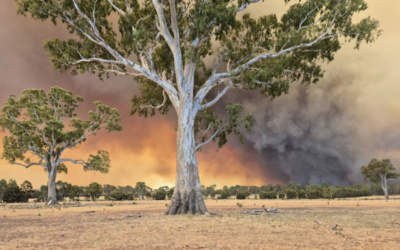“I never want to be one of those egomaniacs jostling for position,” said Sandra, her brow furrowing. “It’s just not my style.”
“But how will the new CEO know what you want if you don’t tell him?” I asked, leaning forward.
“He knows about my work. My track record speaks for itself. I shouldn’t have to line up with everyone else just to say I’m deserving of a bigger role.”
Many of us have felt like Sandra—torn between the desire to make a greater impact and the discomfort with anything resembling “self-promotion.” I certainly have. Yet I’ve observed how fear often disguises itself as humility, giving us socially acceptable ‘air cover’ for avoiding the very actions that would risk our status or comfort.
We tell ourselves we’re not egotistical like those people, particularly those who are thumping their chests the loudest. Which is true, to some extent. But consider this paradox:
Not wanting to seem egotistical is, by default, egotistical. We’re simply protecting our ego from judgment or rejection.
True humility isn’t about depreciating our value or thinking less of ourselves. Rather, to paraphrase C.S. Lewis, it’s about thinking of ourselves less and focusing more on what we can learn from—and do to help—others… even when that means raising our hand, advocating for our value, or stepping squarely into the spotlight.
Sandra’s reluctance struck a personal chord with me. While launching my book The Courage Gap over the last few months, I’ve wrangled with an internal tug-of-war between avoiding exposure and sharing my message with as many people as possible. As much as I’d have loved to spare myself the vulnerability of touting my book, complete with fear of seeming too self-promoting (a cardinal sin in Australian culture, which has elevated self-deprecation to an art form), I knew that holding back would do a profound disservice to why I wrote the book in the first place.
If you’re reading this now, consider that the biggest obstacle to your highest growth and greatest impact isn’t a lack of intelligence, opportunity, or education. It’s a lack of courage to risk being exposed as inadequate, unworthy, or not sufficiently modest.
Let me be clear: Your fear isn’t wholly unfounded. Research shows that self-promotion can trigger social backlash (particularly for women). It’s why, in cultures where modesty is prized, we’re more likely to tell ourselves what Sandra did:
“I’m more of a quiet achiever.” “I let my work speak for itself.” “If it’s meant to be, it will ‘just’ happen.”
These self-protective stories, while sparing us from uncomfortable actions, also sell us short, limit our growth and stand between us and the person we have the potential to become.
What we call humility often cloaks deeper fears. “I let my work speak for itself” sounds virtuous but sometimes protects us from visibility and vulnerability. Everyone misses out.
The mystic Rumi advised that we should live our lives as though the universe is conspiring in our favor. Yet, what he didn’t say is that we need to do our part, which often requires doing the very things that our fear would prefer we didn’t. This explains why researchers have found that we are three times more likely to regret the risks we don’t take than those we do.
I encourage you to stay tuned to where you sometimes create narratives that give you socially acceptable excuses for not moving forward. As I wrote in The Courage Gap:
“Your desire for a positive outcome must transcend your fear of a potential negative outcome.”
Don’t let your fear of what others might say keep you shrinking back or dimming your light. If that sometimes requires venturing out onto the far limb of vulnerability to make a bold ask or advocate for your value—so be it.
Real humility doesn’t shrink back to avoid discomfort. Rather it steps up—sometimes right into the spotlight—not for applause, but because the impact you want to make demands nothing less.
Live bravely!
Margie






